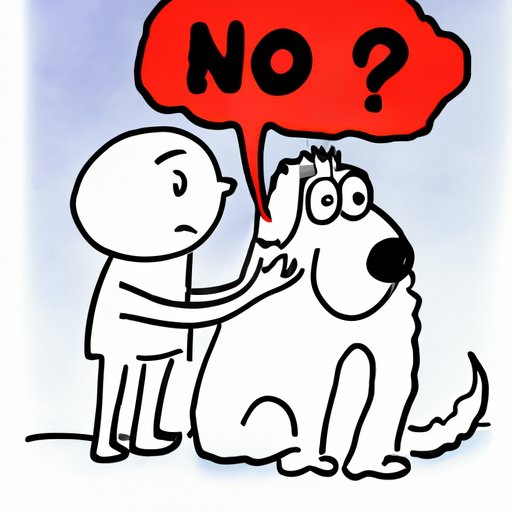As dog lovers, we often find ourselves wanting to show our affection to our furry friends in the same way we do with fellow humans – by hugging them. However, you may have noticed that your canine friend often tries to wriggle out of these embraces or shows signs of stress when hugged. This can lead to confusion and even heartache for dog owners who simply want to express their love. Why don’t dogs like hugs? Let’s dive into the world of canine behavior to find out.
Table of Contents
- Understanding Canine Body Language
- The Science Behind Dogs and Hugs
- The Individuality of Dogs
- How to Show Affection to Your Dog
- Frequently Asked Questions
Key Takeaways
- Dogs perceive hugging as a form of dominance or constraint, which makes them uncomfortable.
- Dogs communicate through body language, not physical contact like humans.
- Each dog is unique, and some may tolerate or even enjoy hugs.
- Alternatives to hugging can be more appreciated by dogs.
Understanding Canine Body Language
Unlike humans, dogs primarily communicate through body language. They use their tails, ears, body posture, and facial expressions to convey their feelings. For a dog, being hugged can feel like a form of dominance or constraint. This is because in the canine world, placing a limb over another dog is a sign of dominance and control. Although your intentions are pure, your dog might interpret your hug as a threatening gesture.
If you want to understand more about canine body language, check out this informative guide on canine communication.
The Science Behind Dogs and Hugs
A study published in Psychology Today analyzed 250 pictures of people hugging their dogs. The researchers found that 81.6% of the dogs showed signs of stress, discomfort, or anxiety. These signs included turning their head away, showing the whites of their eyes, lowering their ears, or licking their lips.
This data supports the idea that most dogs don’t enjoy being hugged. It’s not a natural part of their behavior, as it is for humans. Our dogs tolerate our hugs because they love us and want to please us, but it doesn’t mean they enjoy it.
The Individuality of Dogs
Every dog is an individual, and their tolerance for hugs can vary. Some dogs might tolerate or even enjoy hugs, especially if they’ve been accustomed to them from puppyhood. Others might feel threatened or anxious. The key is to read your dog’s body language and respect their boundaries.
To learn more about how to tailor your interactions to your dog’s unique personality, check out this article on OneTopDog.
How to Show Affection to Your Dog
If hugging isn’t the best way to show your love, what is? Here are a few alternatives that your dog will appreciate:
- Gentle Petting: Most dogs enjoy being stroked, especially on their chest or the base of their tail.
- Quality Time: Spending time with your dog, playing games, or simply hanging out can strengthen your bond.
- Training: Dogs love to learn new things, and training sessions can be a great way to show your affection.
- Treats: Healthy treats can be a great reward and a sign of love.
For more tips on showing your dog affection, visit OneTopDog.
Frequently Asked Questions
Q: Are there any dogs that like hugs?
A: Some dogs might tolerate or even enjoy hugs, especially if they’ve been accustomed to them from puppyhood. However, it’s essential to read your dog’s body language and respect their boundaries.
Q: What signs indicate that my dog is uncomfortable with a hug?
A: Signs of discomfort might include turning their head away, showing the whites of their eyes, lowering their ears, or licking their lips.
Q: How else can I show my dog affection?
A: You can show affection through gentle petting, quality time, training, or giving healthy treats.
For more frequently asked questions about dog behavior, visit OneTopDog.
In conclusion, while our instinct might be to hug our dogs to show our love, it’s crucial to remember that they communicate differently than we do. By understanding and respecting their unique language and boundaries, we can express our affection in a way that makes them feel safe and loved.



